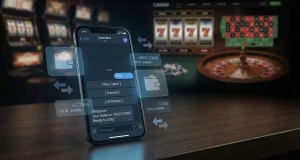The Most Addictive Casino Games Ranked by Psychology
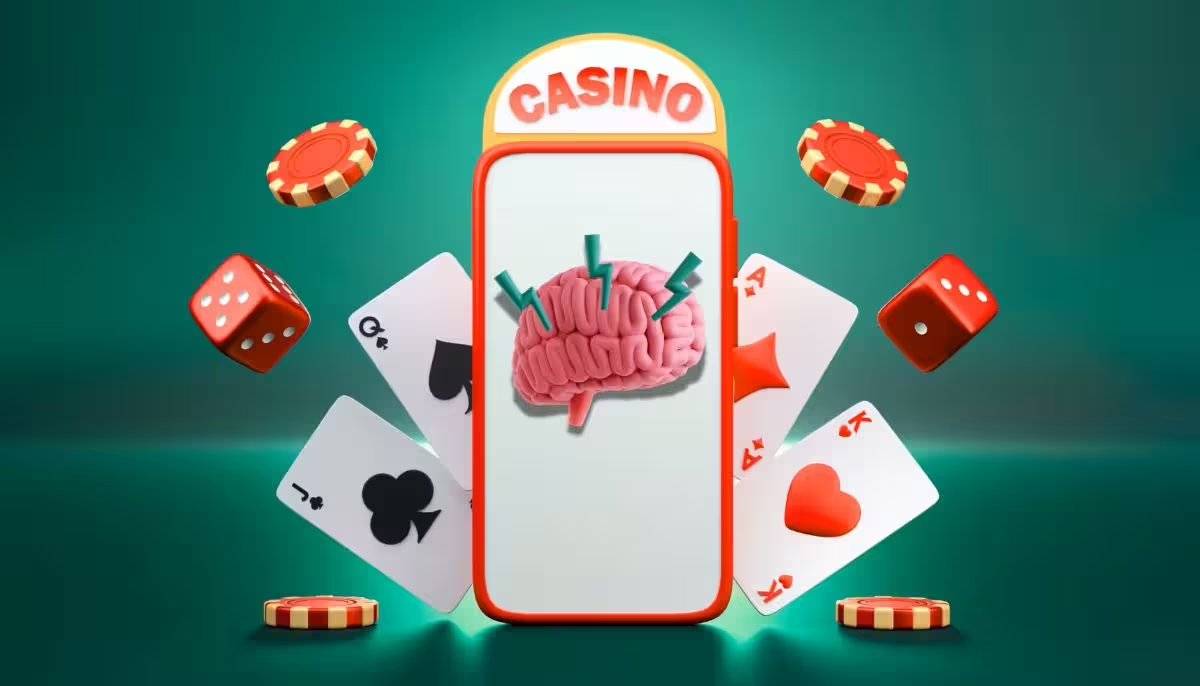
Some casino games are easier to walk away from than others. Then there are the time-sucks. You know, the ones where you sit down and suddenly it’s two hours later? You only meant to play for a few minutes, and there went a chunk of time that you’ll never get back. That’s not your ADHD, and you weren’t in some kind of a trance. It’s by design.
Certain casino games were literally made to be so addictive that it’s really hard to stop playing. Like, super hard. And they rely on psychology to make them so loop-inducing. How? By using unpredictable rewards, quick pacing, and carefully timed feedback to keep you locked into that loop. It’s the same pattern that’s used in social media apps, slot machines, and dopamine-triggering reward systems. Psychologists call it intermittent reinforcement. But for casino developers? It’s called strategy.
We were curious about which games use the above tactics the most. We’re not talking about the house edge or any payout potential; we’re gonna get into the mechanics that keep people spinning, tapping, betting, and doubling down long after they thought they’d stop!
The more you know about how these kinds of games work? The easier it will be to have more control.
What Makes a Casino Game Addictive?
Players have no problems stopping some games. But the ones that keep pulling you back in aren’t only fun; it’s deeper than that. They’re built around psychological patterns that reward repetition and blur the line between control and chance. Here’s what makes some more addictive than others!

The Psychology Behind the Pull
At the core of most high-engagement casino games is a tactic called intermittent reinforcement. Instead of paying out consistently, the game rewards you at unpredictable intervals. Sometimes it’s two spins. Sometimes it’s twenty. That unpredictability makes the next attempt feel like it could be the one, even when it’s not.
Then there’s the near-miss effect. That’s when you almost hit the jackpot—two matching symbols land, and the third one just misses. You didn’t win, but your brain reacts like you came close, which makes it harder to quit. Some games even celebrate those near-wins with graphics and sound cues, creating a false sense of momentum.
Pacing is another tool. Fast rounds with no downtime between bets reduce the space to think. The game pushes you into a repeat cycle where the next decision happens before you’ve processed the last one.
Sensory elements add to the effect. Visual bursts, reward sounds, and rapid-fire animations are all tuned to create a feedback loop. Even modest wins are made to feel like they’re bigger. It’s meant to keep you stimulated even when you’re losing money.

Behavioral Science Insight
These systems pull directly from decades of behavioral research, especially operant conditioning, a framework built on reinforcing behaviors through rewards and consequences. The most effective reinforcement pattern? Variable ratio schedules—the same model used in most casino games. Rewards show up, but never on a fixed timeline, and that randomness keeps players engaged longer than predictable outcomes ever could.
Psychologically, this taps into reward anticipation. Dopamine spikes not when you win, but in the build-up—before the outcome is revealed. That anticipation is what makes it hard to stop, even when losses start to add up.
Fast feedback also plays into impulsive behavior. In these games, you place a bet and get a result within seconds. That immediate resolution removes any real pause between action and reaction. It’s fast, stimulating, and designed to make quitting feel like you’re stepping out of something incomplete.
The Addictiveness Ranking Criteria
As we said, casino games aren’t addictive by accident! They’re built around design choices that influence behavior. In order to rank them properly, we focused on psychological and structural features that are shown to increase compulsive play. It isn’t about the popular games or ones that pay the most; it’s about how each one is built to keep people engaged well past the point of reason.
Below is the framework we used for our rankings:
Game Speed
Faster games decrease decision fatigue, but they also strip away pause and reflection. When bets can be placed in seconds, and rounds move in rapid succession, it becomes much easier for players to get caught in a repetitive cycle. That nonstop pacing is a huge factor in prolonged sessions.
Reward Frequency and Variability
The less predictable the reward? The more gripping it is. Games that use variable reward structures, which is when payouts are delivered randomly instead of on a fixed pattern, create a constant sense of anticipation. Even low payouts can reinforce behavior if they show up at the right interval.
Perceived Control vs. Actual Odds
Games that allow player input usually give the impression that skill can change the odds. But when the underlying math is still tilted heavily toward the house, that sense of control turns into a trap. Feeling like you’re influencing the outcome, even when you’re not, is a really powerful psychological driver.
Psychological Hooks
Near-misses, animated win reactions, and other behavioral nudges make it feel like you’re always on the verge of something big. Add in social proof—like live winner feeds, multiplayer modes, or leaderboards—and the emotional investment deepens. These features are meant to nudge players into staying longer than planned.
Session Duration
Certain formats naturally lead to longer engagement. Fast rounds, autoplay features, or ongoing “bonus modes” all add to extended play. We looked at reported session lengths and behavioral studies that track how long players typically stay with each game type.
Addiction Risk in Behavioral Studies
We also reviewed clinical research and surveys that documented the risk level of different casino games. Some have been directly linked to higher rates of compulsive gambling behavior based on how their mechanics interact with impulsivity and reward sensitivity.
Most Addictive Casino Games: Ranked
Casino games aren’t solely for entertainment. The most addictive ones are designed so that you’re always in motion. You’re betting, reacting, and staying engaged without the time to pause and think about what you’re doing. It’s not always the games with the highest stakes or biggest payouts. Usually, it’s the ones that push you through quick decisions and unpredictable outcomes with no built-in stopping point.
Our list focuses on the formats that use psychology as a tool: fast loops, random rewards, false patterns, and constant interaction.

1. Slot Machines
There’s a reason that slots are everywhere in a physical casino. They’re fast, repetitive, and require no decisions once you start spinning. It’s simple, but the experience is carefully structured. You never know when you’ll win, and the machine makes winning a dollar feel like it’s a big deal. The lights and sounds don’t show that you’re killing it. No, they’re there so you’ll continue to press buttons.
Near-misses are built into the math. You see two jackpot symbols and a third just above the payline, and it feels like you almost had it. That emotional reaction of being close keeps people playing long after they thought they’d stop. Logic exits the picture.
There’s no real transition between bets. No dealer. No break. Just one spin going into the next, with constant stimulation that makes it harder to remember what you’ve won and lost.

2. Online Casino Games (Slots, Instant Wins)
These are the games that are designed for uninterrupted access. No wait times. No casino floor. Just you and the interface, and it’s ready and waiting for you whenever you want. The layout is stripped down and concentrated totally on speed and convenience. Turbo modes remove the brief animations between rounds; each bet is a blink.
Auto-play features take away the need for interaction. You can make a series of bets without lifting a finger, and that makes longer sessions feel like they’re passive, even though your money’s always at risk. There’s nothing to signal when it’s time to stop. No other players. No closing time. The system doesn’t prompt you to take a breath; it encourages continuation.

3. Roulette
Roulette sells a lie that players all love to believe: that the wheel has a memory. Land on red three times? It has to be black next. Bet the same dozen five rounds in a row? It’s bound to hit. The randomness never changes, but perception does, and that’s what this game plays on.
Unlike slots, roulette gives the illusion of logic. The layout invites patterns. The options feel like tactics. And that’s where it draws people in. It doesn’t matter that the house edge never changes; people convince themselves they have the power to adjust the odds.
And once it’s digitized? The tempo ramps up. You’re not watching chips move or waiting for a dealer’s hand. You place your bets, get a result, and hit repeat. It’s a stripped-down cycle that turns roulette into something closer to a reflex than a decision. It’s no longer about risk. It’s repetition masquerading as some sort of a strategy.

4. Sports Betting (Live/In-Play)
Live betting pulls from a totally different part of the brain. You’re not placing one bet before a game and checking the result later. You’re reacting to every shift, every score, every missed shot like it’s a new opportunity. The pace isn’t set by the sportsbook; it’s driven by the game you’re watching.
That constant stream of odds gives bettors the sense that they’re in control, adapting their picks in real time, and in tune with the action. But most platforms aren’t offering better value mid-game. They’re offering speed. And speed keeps the bets coming.
Emotion handles the rest. Momentum swings, comebacks, and frustration with a bad call are all reactions that aren’t in the stands. They go right into the next wager. It’s not about finding an edge anymore; it’s about being and staying involved. That’s why live betting is so hard to stop. It’s not only the game that you’re watching. It’s also the one that you’re trying desperately to win.
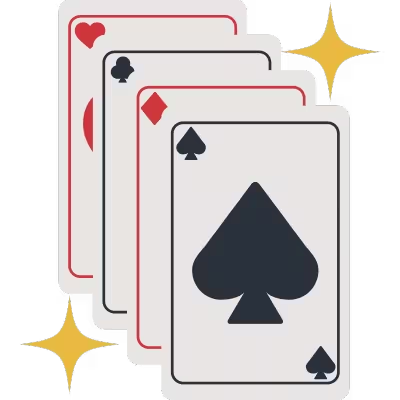
5. Blackjack
Blackjack presents itself as being a game of decisions. You feel like your every move matters; hit, stand, double, or split. The structure welcomes the belief that players are able to influence the outcome, especially when it’s combined with basic strategy charts that suggest there’s a “right” choice for every situation.
But the real draw? The fast pace. Hands are dealt quickly, and the time between one round ending and another starting is minimal. In physical casinos, the dealer keeps it moving. And when you’re playing online, it only gets faster. It turns into a loop of quick judgment calls, and they’re placed one after the other without much time to reconsider.
Losses in blackjack don’t feel random the way they do in slots or roulette. Players blame their own judgment or second-guess decisions that were technically correct. That kind of internal pressure leaves players feeling like they can fix it with a better call next round, which is what holds people at the table.
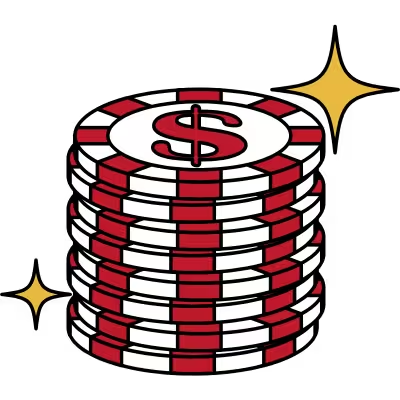
6. Poker
Poker pulls players in with involvement, not with the speed factor. All of the hands feel like they are a test of judgment, timing, and nerve. You’re not only reacting to cards. You’re reacting to people, patterns, and pressure. That level of engagement? It creates its own field of gravity.
Mistakes hit players harder in poker. When a bluff fails or a good hand falls apart, it feels personal! There’s always something to rethink and always a way it could have played out differently. That sense of unfinished business drives players to keep on trucking, and not because the odds demand it, but because the result feels like it’s incomplete.
The pace does ramp up when you play poker online. There’s no shuffle, no table banter, and no waiting between hands. Multiple tables, faster dealing, and less cues make the game feel like it’s just a sequence of reflex decisions and reactions. The emotional component still exists, but it happens faster and more often.
Poker doesn’t really appeal to people with short attention spans; it appeals to players who want a challenge, but that doesn’t make it less addictive.

7. Craps
Craps attracts players with the atmosphere around the game. The game is public. It’s noisy. Everyone who is at the table is reacting to the same roll, and a collective response pushes players to stay involved longer than they might have planned to.
Most new players don’t understand the bet types, but that never seems to stop them from putting their chips down. They follow what others are doing to match the crowd. Once the table starts moving, individual decisions go bye-bye.
There’s also no natural off-ramp, so players are hopping in on someone else’s roll and then feel pressured to keep betting when it’s their turn. The energy doesn’t recede, and that can make leaving feel like it’s awkward or premature when other people are still pressing bets.
The game isn’t addictive in the same way that slots or live betting are. What keeps players here isn’t speed or near-misses; it’s the social setting. The pacing, the crowd reactions, and the absence of breaks make it much harder to stop than you’d think!
Emerging Addictive Formats
Addictive mechanics aren’t limited only to traditional casino games. Newer formats have taken gambling psychology and stripped it down to its most reactive form. The new setups are built around short cycles, instant decisions, and the kind of repetition that doesn’t feel like it’s repetitive until you’re in too deep!

Crash Games (Aviator, Bustabit, etc.)
Crash games are basic by design. A multiplier climbs, and you decide when to cash out. Simple, right? Wait too long, and the round ends without warning. Every second adds more value and risk in equal measure.
There’s no bluffing, no patterns to study, no long-term strategy; just random timing and nerve. The tight loop of watching, reacting, and repeating pushes players through dozens of rounds without a pause. The format encourages players to test their limits and rewards any kind of hesitation with a wipeout.
The games are super popular in crypto and app-based platforms where fast betting and stripped-down interfaces cater to players who are looking for fast engagement and high volatility. The risk is constant, but so is the possibility of an instant payoff.

Casino Apps and Free-to-Play Social Casinos
Free-to-play casino apps don’t offer cash prizes, but the design is built around the same behavioral tricks. Win streaks, bonus meters, fake currencies, and daily rewards; they all push for regular use and long sessions. Leaderboards and friend comparisons create added pressure to keep up with competitors.
The platforms blur the line between casual play and gambling. The stakes aren’t real, but the habits certainly are. Players get used to the pacing, the rewards, and the structure. For a lot of people, it serves as a training period that familiarizes them with betting patterns that will show up later in real-money environments.
How Casinos (and Game Developers) Leverage Psychology
Casino games aren’t just built to function; they’re also built to influence. The mechanics behind the most engaging formats are crafted to hold attention, delay stopping points, and reinforce behavior through calculated feedback. Developers rely on tested psychological triggers, layering them into games to shape not only how players respond but also how they play.

FOMO (Fear of Missing Out)
This tactic works best in environments where other wins are visible. In online platforms, players will see someone hit a jackpot in real time or watch live tables fill up. In social casinos, leaderboard notifications and public bonuses give people the idea that everyone else is winning except for you. That suggestion keeps players chasing what they feel they’re being left out of. FOMO is real!
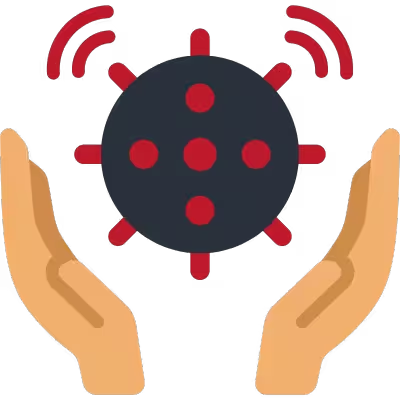
Sensory Overload
Casino design overwhelms the senses on purpose. Quick movement on the screen, bright colors, animated win sequences, and looping sound effects aren’t just for aesthetics. They’re used to crowd out the outside focus. The more stimulation that’s packed into the experience, the harder it becomes to slow down and reassess. This is really apparent in slot-style games and mobile-first platforms, where there is no natural room to pause.

Sunk-Cost Fallacy
The longer someone plays, the harder it gets to stop. That’s not only emotional—it’s structural. Players are usually rewarded with loyalty points, unlocks, or bonus triggers that escalate with continued play. Backing out can feel like players are throwing away their progress. The system turns time spent into perceived value, even when the player is behind.

Loyalty Rewards and Tiered VIP Systems
Casinos and social gaming apps both utilize these systems to reward users for their time and spending. Bonuses scale up with usage, and higher-tier players gain access to exclusive features or perks. The hierarchy is obvious, and walking away doesn’t just mean they’re just quitting the game. It means they’re losing their status. That status, even if it has zero real value, is really hard to give up once it’s earned!

Loss Aversion Design
A lot of games are built to soften losing streaks while keeping players engaged. A spin that returns less than the wager may still trigger a “win” animation. Near-misses are framed as encouraging. Features that almost unlock are made to feel like you’re progressing and not failing. The point here is to keep the player focused on what’s close, not what’s already gone.
Every element—from the way a win is displayed to the language used in a bonus offer—is part of a system that’s been tested to increase interaction. The player isn’t only responding to outcomes; they’re also responding to the very design.
Responsible Gambling Tips
Casino games are built to keep players engaged, but the responsibility to stay in control falls on the person playing. That doesn’t mean swearing off games entirely—it means knowing when to stop and how to set boundaries that hold, even if you’re in the middle of a winning streak!

Set Limits in Advance
Decide how much time and money you’re willing to put in before the first spin or hand. Don’t rely on a gut feeling to tell you when it’s time to stop. Once you’re in the cycle, those decisions get harder to make. Setting fixed limits is a way to remove the temptation.

Use Built-In Controls
All regulated casino platforms include tools that help players manage how often they play and how much they spend. Time-outs give you space. Deposit caps stop the spiral. Self-exclusion blocks access entirely. These are not backup plans; they’re practical safeguards that are meant to be used!

Pay Attention to Changes in Behavior
If you start betting more to recoup losses, cancel plans in order to stay online and play, or get restless when you can’t play, that’s not nothing. Gambling should feel like it’s an optional activity. The second it starts feeling like a fix? It’s high time to reassess what’s happening.

Reach Out if You Need Help
If trying to stop or take a break on your own isn’t working, or if someone close to you is caught in a pattern that’s getting worse, there are people who are trained to help. The resources listed below are private, available around the clock, and don’t require you to explain anything you’re not ready to.
Conclusion: Play the Game, Don’t Let the Game Play You
Casino games aren’t just risky because of the money! What makes them border on predatory is how they’re built to keep you playing. The short rounds, fake wins, and constant stimulation? None of that is accidental.
Knowing how the mechanics work doesn’t stop players from being vulnerable, but it makes staying in control more realistic. You don’t have to look at it or treat gambling like it’s a Venus flytrap, but you can never pretend that it’s neutral.
Here’s a quick refresher on the most addictive casino games and why it’s so hard to stop playing:
- Slots are at the very top of the list; quick bets, unpredictable payouts, and reward systems all distort wins.
- Online formats cut out every pause, and that makes longer sessions much more likely to happen.
- Psychological tactics affect how players behave with near-misses, sunk-cost setups, and false choices.
Setting limits is the only thing that keeps the game from taking more than you planned to give. So be sure to know your liits and always play responsibly.

Alyssa contributes sportsbook/online casino reviews, but she also stays on top of any industry news, precisely that of the sports betting market. She’s been an avid sports bettor for many years and has experienced success in growing her bankroll by striking when the iron was hot. In particular, she loves betting on football and basketball at the professional and college levels.


